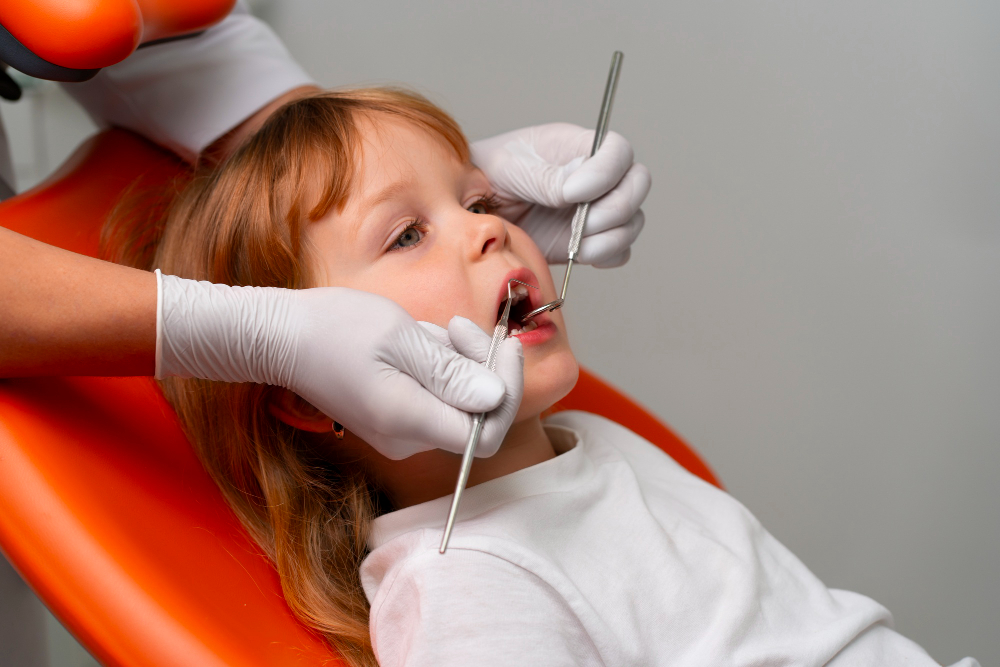Preventive Dentistry for Children: Protecting Little Smiles for a Lifetime of Health

Strong 8k brings an ultra-HD IPTV experience to your living room and your pocket.
As a parent, you do everything to keep your child healthy—vaccinations, doctor visits, balanced meals. But what about their teeth? Preventive dentistry for children is just as vital. Starting dental care early not only helps prevent cavities but also builds lifelong habits that protect overall health.
Let’s explore how early dental prevention can set the stage for a healthy, happy smile that lasts into adulthood.
What Is Preventive Dentistry for Children?
Preventive dentistry for children involves regular dental checkups, cleanings, and practices that stop problems before they start. It’s not just about fixing teeth—it’s about keeping them healthy from the beginning.
This branch of pediatric care focuses on:
● Regular exams to catch issues early
● Professional cleanings to remove plaque
● Fluoride treatments to strengthen enamel
● Dental sealants to block out decay
● Oral hygiene education tailored for kids
Why Early Dental Prevention Matters
Children are more prone to cavities than adults. Their enamel is thinner, and they’re still learning how to brush and floss properly. That’s why early preventative dentistry is essential.
Here’s what makes it so important:
● Reduces dental anxiety: Kids who visit the dentist early learn that checkups aren’t scary.
● Saves money long-term: Preventive care is cheaper than fillings, crowns, or extractions.
● Supports speech and nutrition: Healthy teeth help kids speak clearly and chew properly.
● Builds healthy habits: Regular visits and education teach lifelong care routines.
Services That Support Prevention
Pediatric dental clinics offer a full range of preventive dentistry for children. Here are some standard services:
1. Routine Dental Exams
These exams check for early signs of cavities, misalignment, and gum disease. Dentists also assess oral development to ensure everything is on track.
2. Professional Cleanings
Even with regular brushing, plaque can build up in hard-to-reach places. A professional cleaning every six months helps remove that risk.
3. Fluoride Treatments
Fluoride strengthens the enamel, making teeth more resistant to decay. It’s quick, painless, and extremely effective for young teeth.
4. Dental Sealants
Sealants are thin, protective coatings placed on the chewing surfaces of back teeth. They block out food and bacteria, helping prevent cavities.
5. Oral Hygiene Instruction
Kids need to learn proper brushing and flossing techniques. Clinics offer fun, age-appropriate lessons to make oral care engaging.
The Role of Parents in Prevention
Parents play a huge role in maintaining their child’s oral health. Here’s how you can support preventative dentistry at home:
● Start early: Begin brushing as soon as the first tooth appears.
● Model good habits: Let your child watch you brush and floss daily.
● Limit sugary snacks and drinks: Sugar fuels the bacteria that cause tooth decay.
● Keep up with appointments: Don’t skip dental visits, even if there are no visible problems.
● Use age-appropriate tools: Choose a toothbrush and toothpaste made for kids.
Preventive Dentistry and Overall Health
Oral health is closely linked to general health. Infections in the mouth can affect the whole body. Children with poor dental health may miss school, have trouble concentrating, or suffer from low self-esteem.
By prioritizing preventive dentistry for children, you’re not just caring for their teeth—you’re protecting their well-being, confidence, and future.
When to Start Dental Visits
The American Academy of Pediatric Dentistry recommends a child’s first dental visit by their first birthday or within six months of the first tooth appearing.
After that, regular visits every six months help monitor and maintain healthy teeth.
What Makes Pediatric Dentistry Different?
Pediatric dentists are specially trained to care for kids’ dental needs. They understand how to work with children, handle their fears, and adjust treatment based on age and development.
Their clinics are designed to make kids feel at ease with bright colors, kid-friendly language, and a playful environment that turns dental care into a positive experience.
Note: IndiBlogHub features both user-submitted and editorial content. We do not verify third-party contributions. Read our Disclaimer and Privacy Policyfor details.


